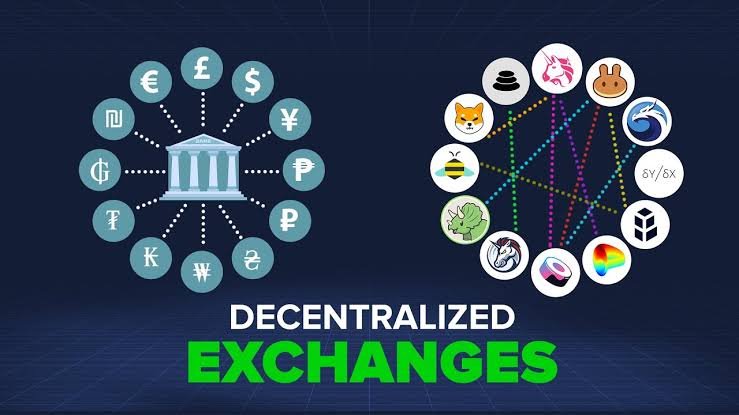Decentralized exchanges (DEXs) are a type of cryptocurrency exchange that operates on a decentralized platform, typically built on blockchain technology. Unlike centralized exchanges, DEXs do not hold the users' funds and instead allow users to directly control their assets through the use of private keys. This eliminates the need for intermediaries and provides greater control and privacy for users.
However, this also means that users are solely responsible for the security of their funds, which can be a major issue in the event of a hack or other security threat. In addition, DEXs are not insured and do not have the same level of consumer protection as centralized exchanges, so it is important for users to exercise caution and thoroughly evaluate the risks and benefits of using DEXs.
To mitigate the risk, users should take measures such as using strong passwords and secure methods for storing their private keys, and spreading their funds across multiple exchanges and wallets.
Another aspect to consider when using decentralized exchanges is liquidity. DEXs often have lower liquidity compared to centralized exchanges, which can result in wider bid-ask spreads and longer wait times for orders to be filled. This can be particularly challenging for users looking to trade larger volumes or execute more complex trading strategies. The limited liquidity on DEXs can also result in slippage, where the executed price of a trade may be significantly different from the intended price, leading to unexpected losses.
The absence of intermediaries can also lead to difficulties in resolving disputes, as there is no central authority to provide support or mediation.
In terms of usability, DEXs can be more challenging to use than centralized exchanges, especially for less technical users. The user interface may be more complex, and the lack of intermediaries can also mean that certain features like charting, market analysis, and trading bots may not be available or have limited functionality.
Furthermore, DEXs are often slower and more resource-intensive than centralized exchanges, and may experience lag or downtime during high-volume periods, which can be frustrating for users looking to execute trades quickly.
While DEXs offer greater control and privacy, they also come with significant risks and challenges that need to be carefully considered. Users should take the time to thoroughly evaluate the risks and benefits of using DEXs, and make informed decisions about how to manage their assets. It is also important to remain vigilant and stay up-to-date on the latest developments in the decentralized exchange space.
Despite the risks and challenges associated with using decentralized exchanges, there are also a number of benefits that make DEXs an attractive option for certain users. One of the biggest advantages is greater control and privacy, as users are able to directly control their assets without the need for intermediaries. This eliminates the need to entrust sensitive information to a third party, reducing the risk of data breaches or theft. Additionally, DEXs typically have lower fees compared to centralized exchanges, as there are no intermediaries to charge for their services.
Another advantage of DEXs is the increased security of funds, as users are able to store their assets in non-custodial wallets that they control. This eliminates the risk of a centralized point of failure, such as a hacking attack on an exchange's servers, or the seizure of assets by authorities. Additionally, DEXs are typically built on blockchain technology, which provides a public and transparent ledger of transactions, making it more difficult for users to engage in fraudulent or malicious activities.
Despite the risks and challenges associated with using decentralized exchanges, there are also a number of benefits that make them an attractive option for certain users. Whether DEXs are the right choice for you will depend on your individual needs and risk tolerance, and it is important to carefully consider the risks and benefits before making a decision. As with any investment, it is important to thoroughly research and understand the risks before making a decision...
Posted Using LeoFinance Beta
